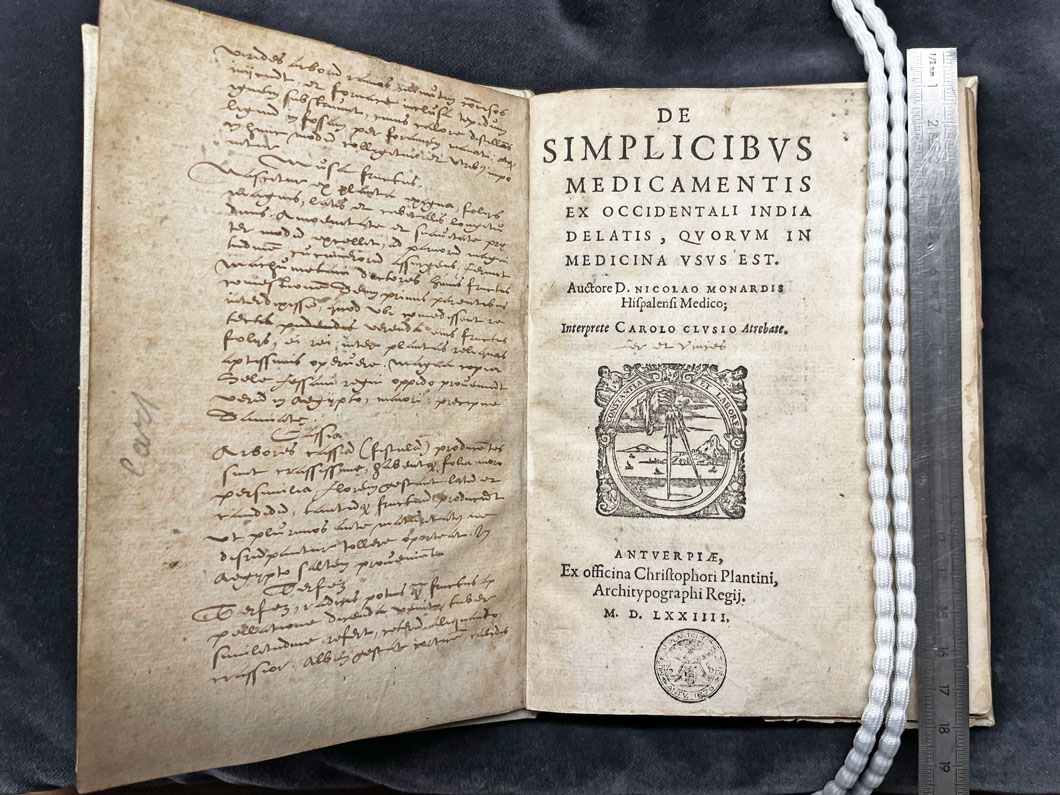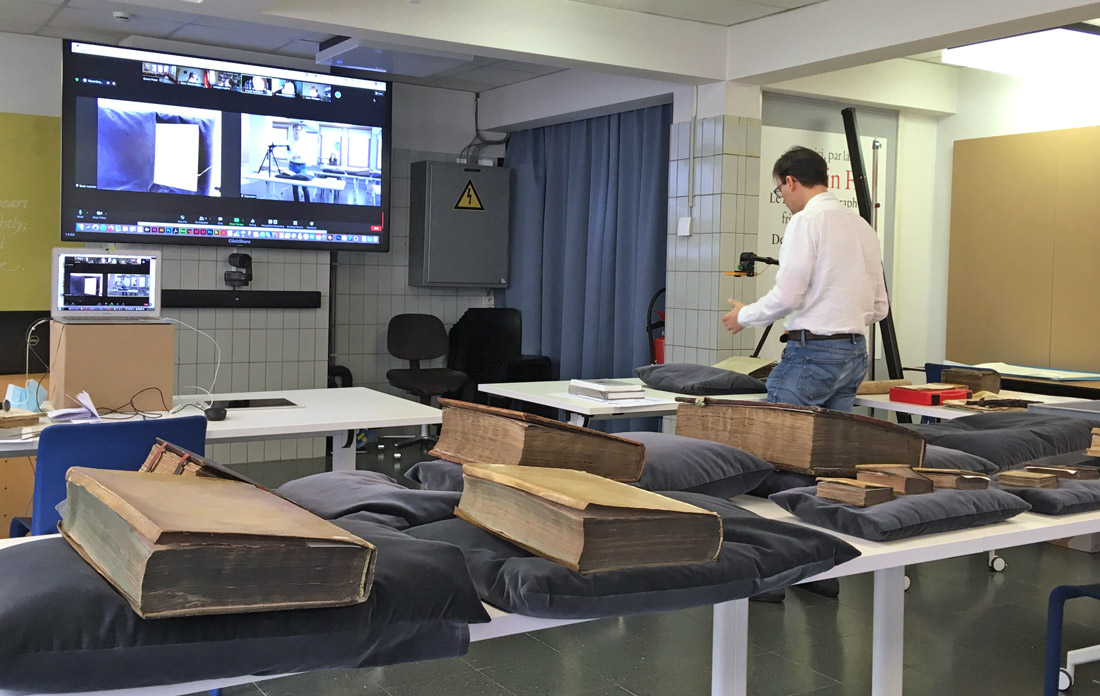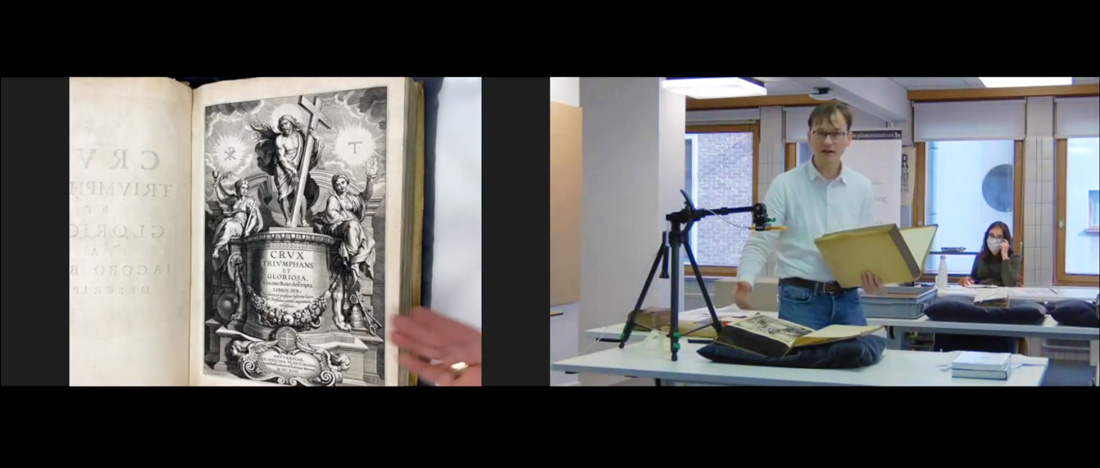
Typographical evolution
Towards a theory about the typographical evolution of handpress books in the early modern era (c. 1450–1800)
Dr. Joran Proot
In this course we will discuss typographical evolution in the handpress era and develop a theory about this phenomenon. The fundamental idea is that (handpress) books were – and still are – design objects which fulfil social functions and, as a result, over and again adopt fitting forms.
Using practical exercises, we will explore how typographical evolution develops, and we will identify different factors laying at the basis of short and long term changes, fashions and trends. Furthermore, we will look at existing theories in different fields (book history, psychology, philosophy, sociology, design studies) which may apply to typographical evolution.
Students will be invited to explore rare materials from the Southern Netherlands and other regions in Europe. This is also an interactive course. Students will be asked to read excerpts of books and articles and to engage in discussions. Students are kindly invited to select examples of their own and present them to the group.
Texts will be circulated as PDFs.
Topics
- Status quaestionis (R.A. Sayce, Henri-Jean Martin, Frans A. Janssen, Bonnie Mak, U. Rautenberg,…)
- Methodological remarks: Typography; contemporary sources; the material book as the main source; statistical approach
- Typographic evolution: the case of the Southern Netherlands, c. 1473–c. 1800
- Revolution in the book world: manuscript, incunable, postincunable; the end of the revolution?
- Gothic scripts, Antiqua, Civilité, ...
- Visual typography (cf. Frans A. Janssen)
- Different paradigms for different audiences: Latin and non-Latin books in the Southern Netherlands; diverging and converging designs models
- ‘Renaissance’ and ‘Baroque’ in the Antwerp Officina Plantiniana
- ‘Baroque’ and ‘Classicism’ in the eighteenth century
- The influence of language and genre on typographical evolution
- Typographic discontinuity: origin, development, disappearance, meaning
- The epigraphic ‘V’ in titles
- ‘Mit den Dingen leben’ (cf. Mihaly Csikszentmihalyi); miniature books and books for visually impaired people
- Tradition and culture, economics, technology, innovation, language and genre as factors of typographical evolution; the jack effect (German: ‘Wagenurhebereffekt’, cf. Michael Tomasello); success and failure
- Applying theory: locating and dating editions
- The early modern facsimile
- The book as a societal artefact and design object avant la lettre

About the teacher, Dr. Joran Proot
- Dr. Proot started his academic career as a literary scholar, studying Jesuit theatre of the Southern Netherlands (c. 1575–1773).
- In 2000, together with a small team, he launched the Short Title Catalogue Flanders (www.stcv.be), a bibliography of hand-printed books in Flanders and Brussels.
- He was the organiser of the international conference Book Design from the Middle Ages to the Future in 2011.
- Dr. Proot was the Andrew W. Mellon Curator of Rare Books at the Folger Shakespeare Library in Washington, D.C., from 2012 t0 2014.
- At the Bibliothèque Mazarine in Paris, from 2014 to 2016, he was the director of both the digital library Mazarinum and the conservation lab.
- From 2016 until 2021, he has worked as a postdoctoral researcher for the EMoBookTrade Project in Milano (Italy), which studies 16th- and 17th-century European book trade.
- Since 2018, he has been a part-time curator at Cultura Fonds Library in Dilbeek near Brussels.
- Dr. Proot teaches Design Theory and the History of Graphic Design at Sint Lucas (Karel de Grote Hogeschool) in Antwerp.

From the video recording of Joran Proot’s lessons on the History of the Book, in March 2021.
Teacher: Dr. Joran Proot
Enrolment fee: €380
Students who graduated less than one year ago from an institution of higher education (hogeschool or university) are entitled to a 20% discount. This discount is also valid for students at and graduates of the Plantin Institute of Typography.
Dates & Times:
Two Saturdays in 2023: June 3 and 10.
12 p.m. – 6:30 p.m. Central European Time
Location: The lessons will be live streamed from the Museum Plantin-Moretus in Antwerp, Belgium. The course includes a show-and-tell with books from the Museum and from the teacher’s private book collection. Belgian students are invited to follow the lessons in the classroom.
Enrol by filling in this form or by sending an email to plantin.instituut@antwerpen.be